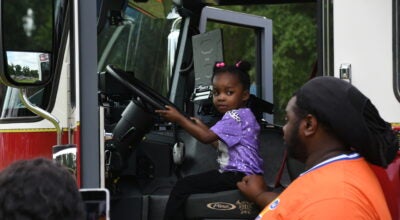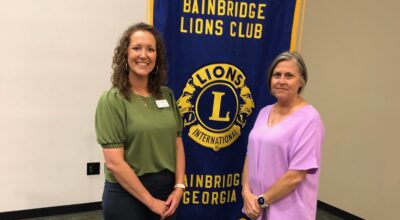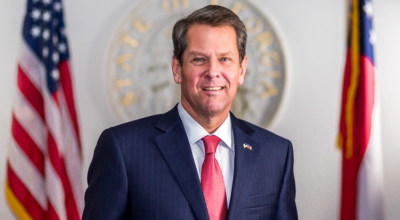District B, Post 3
Published 6:48 pm Friday, October 30, 2009
Incumbent businessman Greg Waddell is being opposed by trucking company owner Phil Long.
At its past two annual retreats, the current council has discussed the possible renovation and/or redesign of the two buildings that make up City Hall and the city-owned Kwilecki building into a more modern, functional structure. What’s your feeling on how the project should progress during the next two years?
Waddell: First, we should put on hold any/all renovations to city hall with the exception of safety issues only (if they do exist). We are in the middle of the worst economic time in more than 60 years. Regardless of SPLOST, this project will cost taxpayers. If the taxpayers could vote on this renovation today, it would not pass—now is not the time. The amount the city manager is trying to get us to “OK” with the architectural firm gives a green light to spend a minimum of $3.5 million that can go as high as $5 million. I can not allow such spending when we are laying off city employees and revenues are fading away.
Long: It is my understanding that the city council has been discussing and planning this project since purchasing the Kwilecki Building four years ago. I have not attended those meetings and thus am not privy to the background information that would facilitate an intelligent and informed opinion. I do think that there are issues with the current city hall facility that must be addressed, such as handicapped accessibility and other life safety and building code issues. These issues must be addressed. As for the total scope and cost of the project, I don’t think I’m informed enough to comment, but I will pledge that I will never support wasteful spending of the monies that we as public servants are entrusted with.
The City of Bainbridge currently makes more than $100,000 per year from its 5 percent hotel/motel tax, at least 2 percent of which must be spent on promoting tourism. What do you think is the best way to spend this and other monies on tourism?
Waddell: Promoting our city with funds from the hotel/motel tax can best be used by promoting from “within” and “abroad.” From within, we need to make our city clean and orderly. When “folks” come to Bainbridge, welcome them with sincerity and allow them to leave and want to come back with clean facilities, sidewalks, streets, parks, etc. Assist with Public Safety on keeping order in our public parking lots where tourists visit when shopping, dining, etc. From abroad, advertise our assets: the Flint River, warm community, the citizens that make Bainbridge such a great city in publications/search engines where people can see our true assets that make Bainbridge a place to visit.
Long: Last year the city established a Conventions and Visitors Bureau to oversee how a portion of these funds are spent. It is my understanding that local business leaders and a representative from a local hotel serve on this board. I think this was a good step toward ensuring that this money is spent on projects that will bring people to Bainbridge and fill up our hotels. These people will spend money in local restaurants and stores creating a real economic impact. I think this is heading in the right direction, and I support the efforts of the CVB.
Given the popularity of the city’s baseball/softball leagues and other Leisure Services programs, how would you like the council to support their growth?
Waddell: We must be competitive. The new Sports Complex once completed will be a tremendous asset. We must support the city’s baseball/softball and all other programs to keep our children off the streets and assist them in building foundations that will last them a lifetime through exercise, discipline and competition. We must supply our Leisure Services Department with the resources needed to make Bainbridge “the place to play” when other towns are seeking out places to host/participate in tournament play. Finally, all city facilities must abide by our non-smoking ban on public facilities and not allow any smoking at the complexes. This is going on in Bainbridge and I have mentioned it to our city manager and director of Leisure Services. The “smoking area” signs are still up inside the baseball complexes next to the players dugouts—unbelievable. As I traveled this past summer with travel league ball, Bainbridge (a smoke-free city) was the only city visited that had a smoking area. All other cities did not allow any smoking or tobacco inside the parks. Again, this type of “double standard” by city personnel must cease in order for us to be the place where families want to return.
Long: I am really excited about the work the city is doing developing eight new ball fields, two multi-purpose fields and basketball courts at the Bill Reynolds Sports Park. I think this will go a long way toward meeting the needs of our citizens for many years to come and may provide a new revenue source as we become more attractive to tournament organizers. I also support the city’s master plan for the continued development of Cheney Griffin Park and the Earle May Boat Basin.
What are your ideas on how the city government can help encourage the creation of new jobs and bolster both existing and potential business activities?
Waddell: We must roll out the red carpet for industry wishing to locate in Bainbridge. Over the years, we have lost many opportunities by playing the conservative role. When you hear of cities getting large industry, those cities “took off the gloves” and said “let’s get the deal done.” We should always listen to our existing business and industry concerns and do what we can do to encourage them to stay in Bainbridge and do what we can do in the form of tax breaks and utilities. Again, keep our youth focused on the classroom so that local businesses and industries can have a local, qualified workforce to employ.
Long: The city must be a willing partner with the Development Authority as we seek to attract new business and new jobs to our area. This means we must provide needed funding and in-kind labor to project development. We as a City Council must also work to ensure that the regulatory environment is such that what a new business encounters upon coming to Bainbridge is easy to navigate and not unnecessarily burdensome.
Would you be in favor of enacting an ordinance that placed a preference on local bidders if it were worded in a legal manner?
Waddell: Absolutely, key words “legal manner.” We must support our local vendors, it is tough seeing our tax dollars being spent outside of Bainbridge. However, with the system we have in place, the low bid policy takes precedence. If we can modify with a certain percentage amount that “legally” allows us to select local bidders even though they may not be the lowest, I am in favor of such an ordinance.
Long: I am generally in favor of doing anything possible to promote our local businesses. I also understand that we operate in a truly global economy and that it will not always be possible to buy locally. If there is a legal way to buy locally while ensuring that our taxpayers get the best bargain for their dollars, I am in support of that.
Declining overall revenues have made the drafting of the City of Bainbridge budget difficult in 2008 and 2009. How do you think the city can continue to balance its budget (spending no more money than it takes in)?
Waddell: By listening to what myself and the citizens of Bainbridge have been saying: stop the wasteful spending, do not move forward with a $3.5 to $5 million renovation of City Hall, “trim all fat,” work with the county to lower property taxes, re-negotiate all contracts that are on the table. We have many contracts with engineering firms—both local and abroad that are making a fortune off of our city. All of these contracts and amounts that we are paying for many professional services should be “called in” and re-negotiated. This would be a great start for balancing our budget. These professionals would certainly rather have the work versus no work at all.
Long: I think our city leadership has done a good job drafting balanced budgets while not increasing local taxes. Bainbridge has certainly not been immune from the recent economic downturn and as a local businessman I understand that hard choices must sometimes be made. I think there is a way for the city to continue to operate and provide a high level of service without increasing taxes and I will work to ensure that this is what we do as a local government.
Both elected officials and citizens have indicated a demand for more pedestrian walkways and crossings, as well as the addition of more bike lanes. How should the City Council proceed on this issue?
Waddell: I have been pushing this for my entire term(s) in office. Sidewalks, bike lanes, pedestrian walkways and crossings are essential for a successful community environment. Travel to any city that is growing and prospering and you will find all of these. Families are able to take walks together in their neighborhood without fear of getting “run over” with safe sidewalks, bike lanes, etc. As the economy recovers, our city government should move forward with creating these family/pedestrian friendly avenues.
Long: I believe in planning to ensure that we don’t just build new sidewalks or bike paths because we perceive a need. We need to be more careful and thoughtful in our approach to these type projects. I would support the development of a city-wide master plan to identify where the needs are and to guide our future construction.
Although city officials state there is a 90 percent occupancy of downtown buildings, there are still a few buildings that are unoccupied or in need of repair. What role should the council have in promoting downtown business and activity?
Waddell: The City Council has played a vital role in helping owners over the years with their buildings and businesses for many years, and I feel that we should continue to offer assistance as long as the economy allows council to do so. The council’s continued support of Main Street will ensure that downtown Bainbridge can and will continue to grow, prosper and thrive.
Long: The city must be very careful to maintain the rights of the private property owner while protecting the value and integrity of our Central Business District. I think there is a legitimate role for the local government to play in the development and promotion of downtown, but I also support the rights of the property owner.
Public Safety statistics indicate the city has issues with violent crimes (some of them gang-related), arsons and nuisance animals. How would you seek address those problems?
Waddell: I told council and Public safety about four or five years ago that if we allowed gangs to come to Bainbridge that it would be our fault and no one else. Well, the same holds true for getting the gangs off the street. It is our responsibility and I have been very supportive of providing our Public Safety with all resources needed to “retake” our community and bring safety back to our streets. It all starts in the home—parents of these gangs should be held accountable along with the violators. Bainbridge is too small to allow the violent crimes that have been happening. I have been vocal and proactive against these crimes. Everyone needs to get involved and support our Public Safety.
Long: We must do everything possible to ensure that our dedicated and professional Public Safety employees have all of the equipment and training they need to protect our community. I look forward to working with these brave men and women to ensure that their needs are met and that Bainbridge is a safe place to live and work.
City Manager Chris Hobby has said that due to the state of the economy, the current budget excludes any direct spending on several community events, including entertainment in conjunction with its 4th of July fireworks in 2010. How do you think the council should decide whether or not to continue funding for city-sponsored community events in future years?
Waddell: The economy will determine this. As we do in our homes, when the paycheck is spent, you stop spending or you end up “broke.” The city is no different—we must operate and live within our means. Bainbridge still has industry and companies that are profitable and Main Street employees could join forces with Chamber of Commerce officials and call upon these industries/businesses to help sponsor events that even in difficult times can bring cheerful times to many of us that are feeling the true pressure from these economic times.
Long: Bainbridge, like many other communities, has had to establish priorities for funding and I think rightfully that some of these type events have been eliminated from the current budget. This current economic downturn will not last forever and as things improve we will need to establish which of these events the public most desires to see restored and then work to bring them back.




